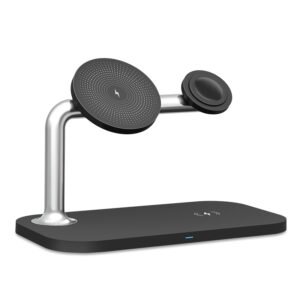Wireless charging technology has come a long way since its inception, and its evolution continues to shape the way we interact with our devices. With the emergence of 5G technology, the possibilities for wireless charging are endless. But what exactly is 5G, and how will it impact wireless charging?
5G is the fifth generation of cellular network technology that promises faster data transfer speeds, lower latency, and greater capacity. This technology will enable new applications and services that require high-speed data transfer, such as virtual and augmented reality, autonomous driving, and remote surgery. It will also enable more devices to connect to the network, including the Internet of Things (IoT) devices, which will require low-latency and high-speed connectivity.
So, how will 5G impact wireless charging? First and foremost, 5G technology will enable faster wireless charging speeds. This is because 5G networks will have lower latency and greater capacity, which will allow for more efficient and faster data transfer between devices. This means that wireless chargers will be able to transfer energy to devices at a much faster rate, reducing charging times significantly.
Another impact of 5G on wireless charging is that it will allow for greater convenience and flexibility. With 5G, wireless chargers will be able to connect to more devices simultaneously, which means that users will be able to charge multiple devices at the same time. This will be especially useful for households with multiple devices or for public charging stations, where multiple users need to charge their devices simultaneously.
However, there are also some challenges associated with 5G and wireless charging. One of the main challenges is that 5G networks will require more power, which may lead to increased energy consumption. This means that wireless charging solutions will need to be designed to be more energy-efficient to offset the increased power consumption of 5G networks.
Another challenge is that 5G networks may interfere with wireless charging signals, especially for wireless charging technologies that use electromagnetic fields to transfer energy. This means that wireless charging solutions may need to be redesigned to avoid interference with 5G networks.
In conclusion, 5G technology will have a significant impact on wireless charging, offering faster charging speeds, greater convenience, and flexibility. However, it also poses some challenges that need to be addressed to ensure that wireless charging remains a reliable and efficient technology. As the wireless charging industry continues to evolve, it will be interesting to see how it adapts to the opportunities and challenges presented by 5G technology.













